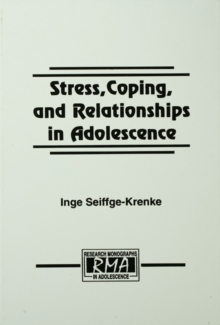
The Decline of Substance Use in Young Adulthood : Changes in Social Activities, Roles, and Beliefs PDF
by Jerald G. Bachman, Patrick M. O'Malley, John E. Schulenberg, Lloyd D. Johnston, Alison L. Bryant, Alicia C. Merline
Part of the Research Monographs in Adolescence Series series
Description
This book is intended as a thoughtful extension to Bachman et al.'s well-received monograph Smoking, Drinking, and Drug Use in Young Adulthood. That volume showed that the new freedoms of young adulthood lead to increases in substance use, while the responsibilities of adulthood--marriage, pregnancy, parenthood--contribute to declines in substance use. The Decline of Substance Use in Young Adulthood examines how the changes in social and religious experiences and in attitudes toward substance use observed among young adults are related to changes in substance use, family transitions, living arrangements, college experience, and employment. The research uses a variety of analysis techniques and is based on the nationwide Monitoring the Future surveys of more than 38,000 young people followed from high school into adulthood.
The research covers the last quarter of the 20th century, a period when drug use and views about drugs underwent many important changes. In spite of these shifts, the overall patterns of relationships reported in this book are impressive in their consistency across time and in their general similarity for men and women.
Specific questions addressed include the following:
*As young adults experience new freedoms and responsibilities, do their attitudes about drugs change?
*Do their religious views and behaviors shift?
*Do their new freedoms and responsibilities affect the amount of time they spend in social activities, including going to parties and bars?
*And how are any of these changes linked to changes in cigarette use, alcohol use, marijuana use, and cocaine use?
Information
-
Download - Immediately Available
- Format:PDF
- Pages:328 pages
- Publisher:Taylor and Francis
- Publication Date:04/04/2014
- Category:
- ISBN:9781135643881
Other Formats
- Hardback from £84.99
- EPUB from £26.72
- Paperback / softback from £32.99
- PDF from £44.06
Information
-
Download - Immediately Available
- Format:PDF
- Pages:328 pages
- Publisher:Taylor and Francis
- Publication Date:04/04/2014
- Category:
- ISBN:9781135643881










